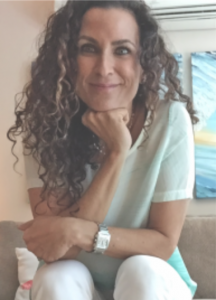Luke Skywalker: What’s in there?
Yoda: Only what you take with you.
I love this scene in Star Wars: Empire Strikes Back because I believe it perfectly illustrates the role of the unconscious in our lives. In this scene, Luke turns to enter a spooky and dark cave and what he comes face to face with is the feared (and unconscious) forces of darkness and anger personified by the presence of Darth Vader. In his vision, he enters in to battle with Vader and eventually decapitates him.
The cinematic insinuation is that Luke has deeply unresolved issues related to his own core identity as a man and a Jedi. The image of him defeating Vader (his Father) provides a context to better understand his complex internal struggle regarding good and evil, dark and light. It is a metaphor for what lies in his unconscious world and how it dominates him because it is unexplored and outside of his conscious awareness. The power it has over Luke is precisely because he doesn’t have access to these emotions on a conscious level.
As a shrink I am often asked questions that are very similar to this sentiment. I am asked if I am going to psycho-analyze people at various social settings, as though I will somehow, find or create some kind of content that is not already operating intra and inter-personally. There’s an underlying insinuation that the content that surfaces isn’t generated from their own psyche’. Or, there is the undertone that I will discover some kind of “fact” or psychological treasure that “solves” an issue or “fixes” a problem. None of which is the journey I seek to collaborate on. I am not in the business of fixing people because the notion that we are ever truly “broken” is incongruent with my philosophical beliefs.
The reality is, you will only find what already exists inside of you, even if you are largely unaware of that content and the power with which it operates as a controlling force or dominant pattern in your life. Given the space, and fuelled by genuine curiosity, your patterns, themes and content will emerge. What you discover will be deeply contextual and powerfully influential, as it reflects your beliefs, patterns, fears, and often trauma(s) that are a result of your unique experiences and temperament. But make no mistake about it; you bring it to the journey. I am merely a passenger offering a mirror for reflection.
Unconscious patterns are formed early in life and stored away, often not fully emerging as dominant pattern(s) until we are well into our young adulthood. Eventually, the unconscious reigns supreme over the vast majority of our decision-making processes from the careers we “choose”, to how we communicate and confront conflict resolution, to the people we are drawn to for intimacy and partnership.
I am loath to pull the bloom off the rose of what we call “chemistry” or attraction in this society. Phrases such as, it was meant to be, it was love at first sight, or he/she is “The One.” These notions of chemistry are a really lovely way to look at attraction and it offers a mystical interpretation to something that is actually based almost entirely on the modelling patterns absorbed throughout early development and we continue to experience throughout maturation. From this understanding, chemistry is unconscious emotional patterns of attachment and connection influencing the subtext of our mind.
On one side of that coin are all the intoxicating elements that draw us into “love”, lust and attraction. If we flip that same coin over, we have the seedy subtext of our unconscious emotional patterns that surface in the interpersonal domain. It is for this very reason that I often hear people reflect that the things they were most attracted to in their spouse are now the very traits that drive them apart. Quite literally, they are opposite sides of the same coin. A package deal, if you will. It’s the emotional equivalent to a BOGO deal (you buy one, get one for free).
In the beginning, when you were drawn to this person, you called it chemistry and you built a life around the belief that it was “fate” or “meant to be.” Now, usually years north of the lust, you find the very same trait(s) to be the bane of your existence. This side of the coin is noticeable only in the nuances of a relationship and not easily detected, for the most part, in the early and lustful days of romance (as an aside, I’d define “early” as the first two years). It is through the passage of time that deeper, much more subtle, contextual nuances emerge related to conflict resolution, communication patterns, parenting patterns and styles, deeply held character based personality traits, and on and on.
Unconscious beliefs influence virtually every aspect of your personality development and call into question the notion of “free will”, as we play out patterns from our past under the guise of individuality and freedom of choice. Generally speaking, I tell my patients at the start of therapy that what ever you are aware of or come into therapy knowing you want to address, is helpful. But it is not what’s really “going on” at your core. It’s what we are unaware of that holds the most influence over our psyche’.
[bctt tweet=”It’s what we are unaware of that holds the most influence over our psyche.” username=”hey_sigmund”]
Once something that was unconscious becomes conscious, you can never un-know it. You may choose to ignore it, suppress it (suppression is always conscious; repression is unconscious), or pretend it’s not there, nagging at your consciousness, but you can never again be unaware of it. This is the start of what we would call wisdom or insight (hence the phrase “insight oriented therapy). You begin to understand what is happening underneath the surface of your behavior and patterns. You can begin to observe your choices and behavior from a deeper lens of reflection and shift your response to your feelings and emotions. You can begin to metabolize and move through areas in your mind where you had previously felt “stuck” or stagnant or uninspired and yet you couldn’t pinpoint any exact “thing” that ailed you.
The “symptoms” you came to address end up being only the low hanging fruit of our emotional world. Once we get to the core of that symptom pattern we can trace it back to its root system and begin the process of deeply address the areas and patterns in your life that no longer serve your needs or wants.
Long-term change requires the marriage between deep insight about how and why our mind operates the way it does and persistent and relentless effort to tweak and shift patterns that are no longer congruent with your newfound insights. The mind is the seat of insight, while the brain is the epicenter of change. Breeding an environment of curiosity and wonder about how your mind absorbs, processes and metabolizes experiences is the role of the therapist. Going about changing long held unconscious patterns is the job of the patient. And as Yoda says to Luke later in the same scene in Empire Strikes Back “do or do not. There is no try.”
About the Author: Dr Sarah Sarkis
 Sarah is a licensed psychologist living in Honolulu, Hawaii. Originally hailing from Boston Mass, she has a private practice where she works with adults in long-term insight oriented therapy. She works from an existential psychology vantage point where she encourages her patients to “stay present even in the storm.” She believes herself to be an explorer of the psyche and she will encourage you to be curious about the journey rather than the destination. She emphasizes collaboration, partnership, and personal empowerment.
Sarah is a licensed psychologist living in Honolulu, Hawaii. Originally hailing from Boston Mass, she has a private practice where she works with adults in long-term insight oriented therapy. She works from an existential psychology vantage point where she encourages her patients to “stay present even in the storm.” She believes herself to be an explorer of the psyche and she will encourage you to be curious about the journey rather than the destination. She emphasizes collaboration, partnership, and personal empowerment.
She approaches psychological wellness from a holistic and integrative perspective. Her therapeutic style is based on an integrative approach to wellness, where she blends her strong psychodynamic and insight oriented training with more traditionally behavioral and/or mind/body techniques to help clients foster insight, change and growth. She has studied extensively the use of mindfulness, functional medicine, hormones, and how food, medicine and mood are interconnected. Her influences include Dr.’s Hyman, Benson, Kabat-Zinn and Gordon, as well as Tara Brach, Brene’ Brown, Irvin Yalom and Bruce Springsteen to name only a few.
Please visit her website at DrSarahSarkis.com and check out her blog, The Padded Room.
[irp posts=”2090″ name=”What Butterflies Can Teach Us About the Mind/Body Connection: A Shrink’s Guide to Listening to Your Gut (by Dr Sarah Sarkis)”]
[irp posts=”2283″ name=”Circling the Storm Drain – The Origins of a Narcissist (by Dr Sarah Sarkis)”]



Thank you for this exact subject matter. I have learned to think and believe very similarly, yet to
put into any sort of logical layman’s terms has been difficult for me to explain and to sound like I know what I’m talking about.
It can be mind blowing to realize how each of us ‘think’, given the circumstance, and so very often a huge factor in regard to the outcome of any situation or experience, and how the end result or impression left can still be a bit skewed.
For all the years I have tried offering the most concise, simple answer for my husband to consider in regard to his chronic dissatisfaction with life, that might ultimately come down to ‘how he thinks’…
I now realize it is NOT a simple concept that everyone can understand and implement, until it happens for them.
You can’t really make someone comprehend this. Such an overlooked basic concept that becomes almost totally unconscious once you and your mind become aware of our unknowing previous tendency to bias.
(Hope this makes sense!)
Well said, Sarah!
I am a new fan.